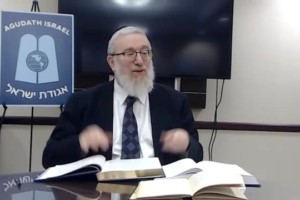Agudath Israel to Montana Supreme Court: Uphold Scholarship Tax Credit
Agudath Israel of America has filed an “amicus curiae” (friend of the court) brief in a case before the Supreme Court of Montana, urging the court to uphold a state program that gives tax credits to taxpayers for contributions to scholarship programs that benefit needy students, including those attending religious schools.
The case, Espinoza v. Montana Department of Revenue, centers on the question as to whether the tax credit program is constitutional. The Montana agency maintains that the program violates the state constitution, which contains clauses that prohibit the state from providing aid to religious institutions, including religious schools. The Agudath Israel brief, authored primarily by Agudath Israel Special Counsel Mordechai Biser, with assistance from law student Jacob Lebovics and Montana attorney Jennifer Bordy, counters that the U.S. Constitution’s protection of free exercise of religion overrides the state’s bar of aid to students attending religious schools, and therefore the program should be upheld.
The Agudath brief points specifically to the U.S. Supreme Court’s recent ruling in Trinity Lutheran Church v. Comer, in which the Court upheld a Missouri state program that provided government aid to religious institutions, despite clauses in the Missouri state constitution that barred such aid. The Supreme Court held that under the Free Exercise Clause, only a state interest “of the highest order” can justify a policy that discriminates against religious institutions and individuals in the provision of government benefits. The Agudath brief thus argues that according to the Supreme Court’s ruling, where there is a conflict between a state constitution that prohibits aid to students attending religious schools and the Free Exercise of the U.S. Constitution, the Free Exercise Clause should prevail.
The Agudath brief concludes by urging the Supreme Court of Montana to uphold the program and to allow students attending religious schools to continue to receive scholarships funded by the tax credit program. The Montana Supreme Court’s ruling could have ramifications for similar programs throughout the country, as well as attempts to enact such legislation in other states.



